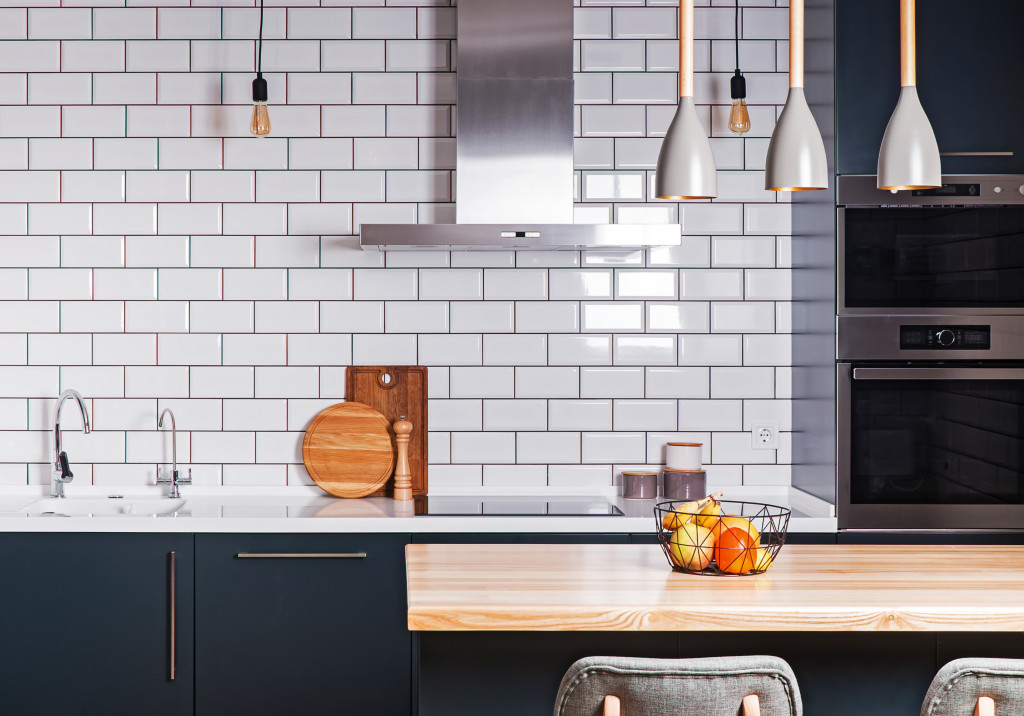The kitchen has often been described as the heart of the home, but it’s also the site of so many accidents. It’s estimated that 3 in 5 home accidents occur in the kitchen. It doesn’t take a rocket scientist to understand why. You’re surrounded by flammable gas and sharp objects, and if you’re not careful, you could get into an accident. There’s also the matter of food safety. Improper food handling can lead to spoilage or even poisoning.
Prolonged home-stays have made people more prone to mistakes. You’re more likely to burn or cut yourself if you’re tired or distracted. That’s why you need to take the necessary precautions to minimize accidents in the kitchen. This is especially important if you have children or pets at home. You have to guard against everything from microbial growth to accidental fires. Here are a few tips to improve kitchen safety in your home.
1. Dress appropriately for cooking
Just because you’re at home cooking doesn’t mean you can wear whatever you want. You still need to wear the appropriate clothing for the kitchen. I’m not saying you need to buy a toque and a chef’s jacket, but you shouldn’t be near an open flame if you’re not wearing a shirt. At the very least, you need to keep your body covered.
Culinary professionals suggest wearing a short-sleeved shirt when cooking and preparing food. You also need to wear shoes while in the kitchen. The kitchen floor can be slippery and non-slip shoes will help prevent accidental slips.
2. Prepare for a kitchen fire

It’s just a matter of time before a kitchen fire happens in your home. The Federal Emergency Management Agency estimates that kitchen fires cause over $460 million in damage and nearly 4,000 injuries every year. If you’re not careful, it could happen to you.
Since most residential fires start in the kitchen, it only makes sense to concentrate on this area. For starters, you’ll need a fire extinguisher in an accessible corner or cabinet. You also might want to teach your family the basic use of this tool. A fire can quickly grow out of control within seconds, so make sure to act quickly and decisively.
There are many types of fires, and you need to learn how to fight each one. For instance, grease fires cannot be extinguished by water. You’ll need to cut the oxygen flow and use a chemical foam or special fire extinguisher to fight grease fires.
Accidental bumps and knocks can also cause a kitchen fire, especially if the pot or pan is filled with grease. The hot liquid could also lead to life-threatening injuries. Make it a point to position the handles away from you. Turn it inwards to keep it out of harm’s way. You also need to have a good supply of dry pot-holders for handling hot cookware. Finally, hire a professional to do refrigerator repair to minimize electrical problems.
3. Keep your tools sharp
It might sound counterintuitive, but you want to keep your tools as sharp as possible. A dull blade is more dangerous than any kitchen tool. Even if you know how to use a knife properly, you can still cut yourself if the blade can’t cut through the food.
Thankfully, sharpening a blade is easy and straightforward. Some use a whetstone to sharpen the blade, but if you’re looking for something more convenient, you can always buy an electric knife sharpener. Just make sure you’re using the right knife for the food you’re cutting. You wouldn’t use a butcher’s knife to slice bread, nor would you use a butter knife to fillet a fish.
4. Prioritize cleanliness
Nothing is more important to food preparation than hygiene. If you don’t take kitchen hygiene seriously, you could put you and your family’s life at risk. Salmonella and botulism kill thousands each year, and a single mistake could have life-altering consequences.
For starters, you need to eliminate cross-contamination and improve kitchen sanitation. Wash your hands after handling raw meat and vegetables. Raw food should be kept away from cooked food as well. It would be easier if you just washed your hands every after task to remove contamination.
You also need to use different chopping boards for different types of food. As a general rule, raw meat, seafood, and produce should have their own chopping boards. Using a single board for different types of food could lead to cross-contamination.
The bottom line
These four tips will help ensure a safer and cleaner home kitchen. Complacency could lead to accidents, and you always need to prioritize safety to prevent kitchen accidents and food contamination.
